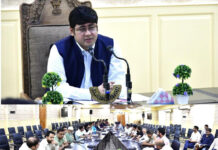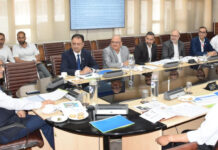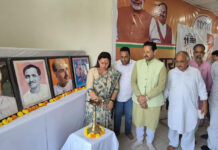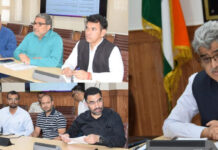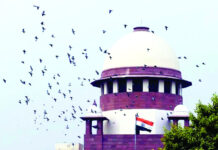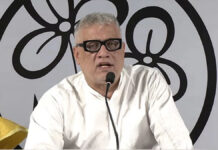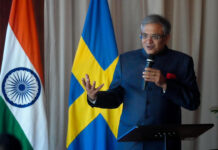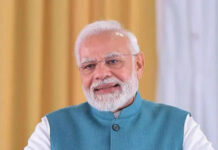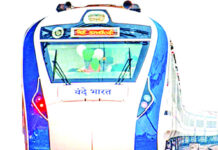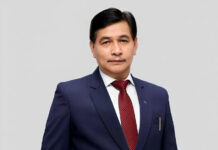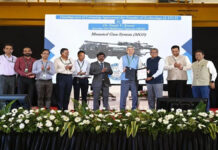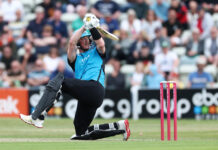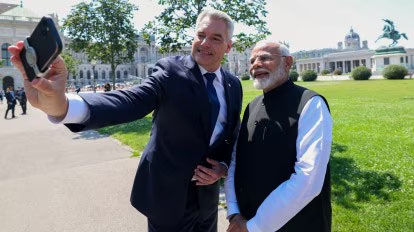NEW DELHI, July 11
A day after he met Russian President Vladimir Putin, the Russia-Ukraine war continued to dominate Prime Minister Narendra Modi’s meeting with Austrian Chancellor Karl Nehammer in Vienna where he said “this is not a time for war”, “problems cannot be solved on the battlefield” and “loss of innocent lives, anywhere, is unacceptable”.
Modi’s reiteration of the statements, echoing what he said in Moscow, signals to the West that he has sent a clear message to Putin. The fact that he reiterated this, while meeting a European leader who is not a member of NATO, is significant, sources said.
In the first visit by an Indian PM in 41 years, Modi reached Vienna late on Tuesday night. After holding bilateral talks with Nehammer, which he described as “fruitful discussions”, Modi said: “Chancellor Nehammer and I have discussed in detail the ongoing conflicts around the world, whether it is the conflict in Ukraine or the situation in West Asia. I have said before that this is not a time for war. Problems cannot be solved on the battlefield. The loss of innocent lives, anywhere, is unacceptable.”
He said India and Austria emphasise on dialogue and diplomacy for the earliest possible restoration of peace and stability.
“We are both ready to provide every possible cooperation to achieve this,” he said, recalling that the historic Vienna Congress was hosted in the hall where they were standing, and the conference provided direction for peace and stability in Europe.
Nehammer, on his part, said India is an influential and credit-worthy country whose role is more than important when it comes to the Russia-Ukraine peace process. “We had very intensive talks about the Russian aggression against Ukraine. For me, as the Federal Chancellor of Austria, it is particularly important to get to know India’s assessment and to understand it, and to familiarise India with European concerns and worries,” he said.
“Moreover, the conflict in the Middle East was a major topic,” Nehammer added. As a reliable partner, Austria will be available as a site for dialogue, making use of its unique position as a neutral country, a member of the European Union but not a member of NATO, he said. “As such Austria is willing to act as a bridge builder and to contribute towards the achievement of a peaceful solution,” he said. Modi said he was happy that he got the opportunity to visit Austria at the beginning of his third term. “This visit is both historic and special. After 41 years, an Indian Prime Minister has visited Austria. It is also a pleasant coincidence that this visit is taking place as our bilateral relations complete 75 years,” Modi said. “We have identified new opportunities to further strengthen our cooperation. We have decided to provide strategic direction to our relationship. A blueprint for cooperation over the coming decades has been prepared. This is not limited to economic cooperation and investment alone,” he said.
“We will work to combine our strengths in areas such as infrastructure development, innovation, renewable energy, hydrogen, water and waste management, artificial intelligence and quantum technology. To connect the youth and ideas of both countries, the start-up bridge will be accelerated,” the PM said.
Stating that an agreement on mobility and migration partnership has already been reached, Modi said this would facilitate legal migration and the movement of skilled workforce.“Today, we also shared our thoughts on challenges faced by humanity, such as climate change and terrorism. Regarding climate, we invite Austria to join our initiatives like the International Solar Alliance, Coalition for Disaster Resilient Infrastructure, and the Biofuel Alliance,” he said.
“We both strongly condemn terrorism. We agree that it is unacceptable in any form and cannot be justified in any way,” he said. Modi said the two sides agreed on the need for reforms in the United Nations and other international institutions to make them more contemporary and effective.
Modi later met Austrian and Indian CEOs and invited Austrian companies to invest in India as he highlighted the potential for bilateral collaborations in infrastructure, energy, emerging technologies and other sectors.
“PM highlighted the significant potential for collaboration between Indian and Austrian companies in various sectors, including infrastructure, renewable energy, green sectors, new and emerging technologies, fintech, startups, and innovation, among others,” the MEA spokesperson said.

